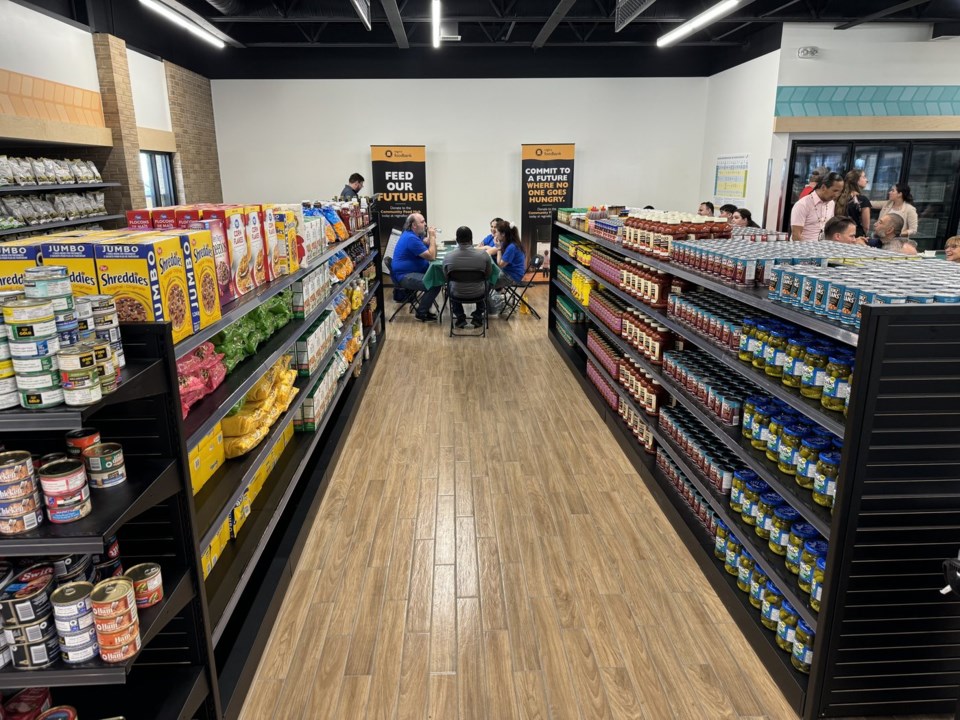People with disabilities are twice as likely to live in food insecure households than those without disabilities, a new Statistics Canada report says.
The report, published on Wednesday, used data from the 2021 Canadian Income Survey and found 26.4 per cent of respondents with a disability experienced some level of food insecurity, compared to 12.5 per cent of people without disabilities.
The study "validates what we've been saying," Rabia Khedr, national director of Disability Without Poverty, said in an interview Wednesday.
Khedr said that with the rising cost of living, she expects the situation has become even more dire in the years since the 2021 data was collected.
StatCan said food insecurity can range from marginal – filled with worries about food supply – to severe, forcing people to miss meals and, in extreme cases, go a day or more without food.
People with disabilities affecting their sight, learning, memory or cognition were most likely to have some level of food insecurity overall, while those with developmental disabilities had the highest level of severe food insecurity, according to the study.
Although lower income is tied to household food insecurity, the study found that people with disabilities were still at higher risk even when researchers accounted for income, employment status, education and other demographic factors.
"This finding suggests that there could be other pathways through which disability affects food insecurity, independent of income," the report said. "For example, persons with disabilities often incur higher health care costs, which can strain their budgets and leave insufficient funds for food expenses."
In addition, "mobility challenges can hinder their ability to access grocery stores and community resources," it said.
The Canadian Income Survey used in the StatCan report included Canadians aged 16 and older living in the provinces. Data from the territories was not yet available.
Khedr said she often speaks to people with disabilities who are struggling with food insecurity.
”They're making difficult choices on a daily basis. You know, it's either food or shoes for my child," she said.
Governments have not made adequate efforts to address the problem, Khedr said, noting that the proposed Canada Disability Benefit announced in the federal budget last April falls far short of what's needed.
The benefit was a $6.1-billion item in the budget that would be rolled out over six years, with $1.4 billion allocated per year after that — including administrative costs.
The disability benefit promised to provide a maximum of $2,400 a year — or $200 a month — for low-income people with disabilities starting in July 2025.
”The folks in deepest poverty in this country facing the most food insecurity are going to be the ones that will benefit the least, so really it's not getting the support to the people who need it most," Khedr said.
"We're not working toward helping disabled people achieve financial security — and achieving financial security means paying their rent, buying food. It doesn't mean much more than that.”
A spokesperson for the minister of diversity, inclusion and persons with disabilities said the federal government is "seeking input from Canadians" on the Canada Disability Benefit and that it is "in discussions with all provinces and territories to ensure that this support is not clawed back."
"The fact Canadians with disabilities face greater barriers to social and economic participation is unacceptable," Alisson Lévesque, director of communications for minister Kamal Khera, said in an email to The Canadian Press.
This report by The Canadian Press was first published Aug. 21, 2024.
Canadian Press health coverage receives support through a partnership with the Canadian Medical Association. CP is solely responsible for this content.
Nicole Ireland, The Canadian Press




